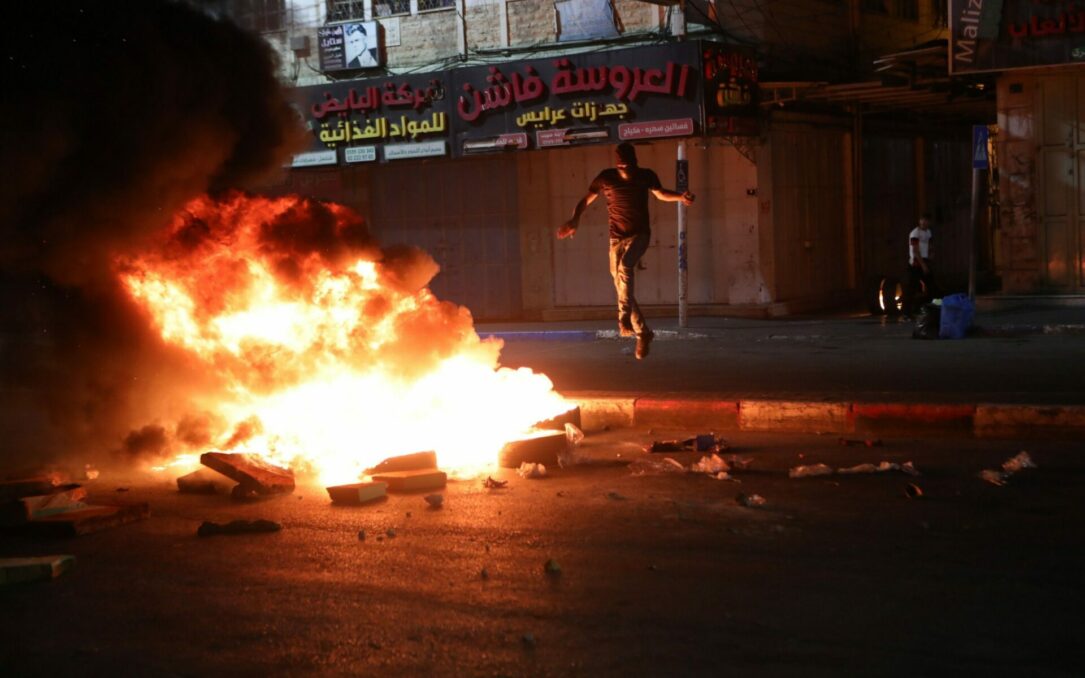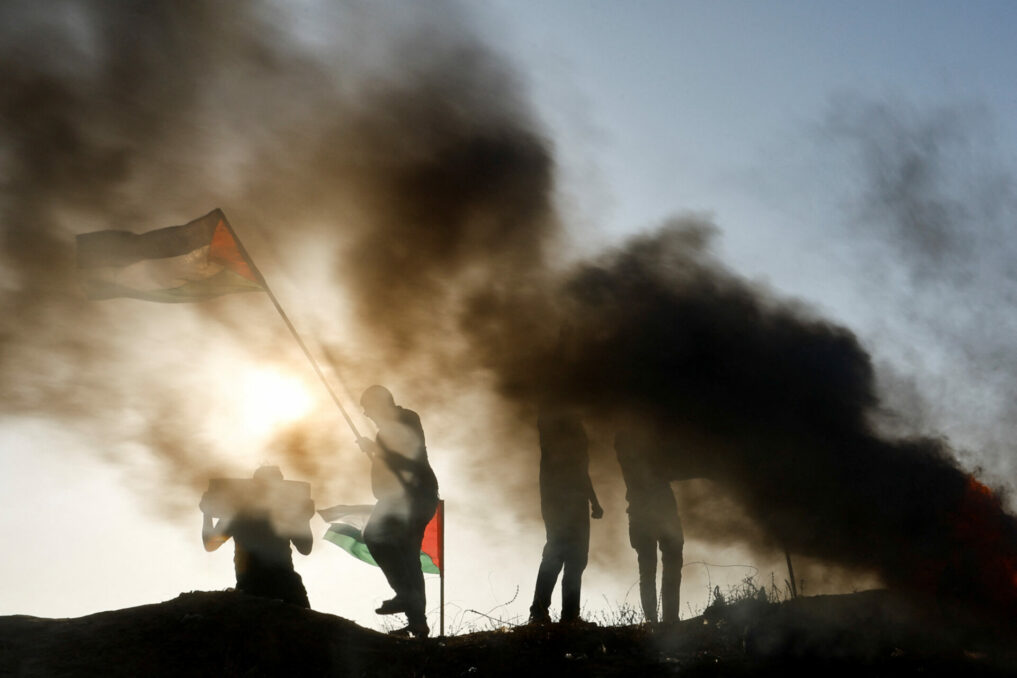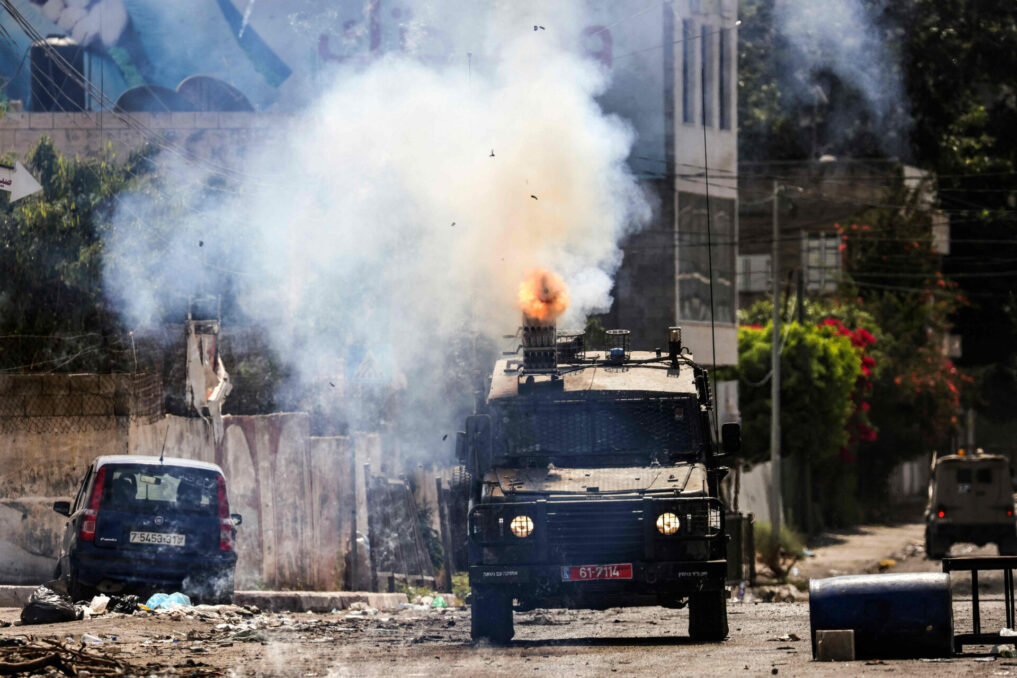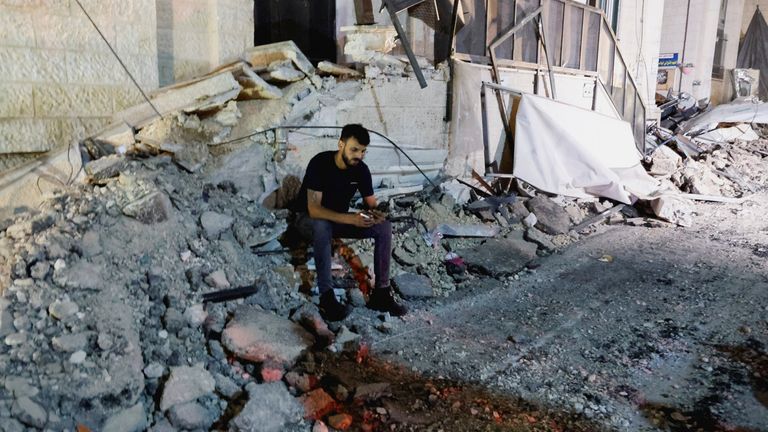Table of Contents
Israeli Air Strikes on Gaza Responding to Rocket Attacks, as Israeli Forces Conclude Withdrawal from Jenin
In a series of events, Israel carried out airstrikes on Gaza in retaliation to rocket fire from Palestinian militants, coinciding with the completion of Israeli forces’ withdrawal from Jenin in the occupied West Bank.

Intense Clashes and Loss of Lives in Jenin
The culmination of a major two-day operation in the refugee camp of Jenin resulted in the loss of 12 Palestinian lives, while an Israeli soldier was killed during the withdrawal, leading to intense gun battles. Subsequently, early on Wednesday, the Israeli military intercepted five rockets launched from Gaza. One of the interceptor missiles caused damage to a house in the southern Israeli town of Sderot.
Although no militant group immediately claimed responsibility for the rocket launches, Israeli fighter jets targeted an underground weapons manufacturing facility utilized by Hamas, which governs Gaza, as well as a raw materials manufacturing facility for rockets. The Israeli military attributed responsibility to the Hamas terrorist organization, holding it accountable for all acts of terrorism originating from the Gaza Strip and warning of the consequences of security violations against Israel.

Hamas referred to a car-ramming and stabbing attack in Tel Aviv as a “natural response” to the Jenin operation. The attack, carried out by a Palestinian man from the West Bank, injured seven people on a busy shopping street before the assailant was fatally shot by a civilian. Prime Minister Benjamin Netanyahu emphasized that such attacks would not deter their ongoing fight against terrorism and emphasized that the Jenin operation was not a one-time action. He vowed to continue uprooting terrorism and prevent Jenin from becoming a sanctuary for terrorist activities.
Palestinian leaders accused Israel of invading Jenin, while an Israeli military spokesperson confirmed the conclusion of the operation and the withdrawal of soldiers from the area. The military operation in Jenin began with a drone strike targeting a joint command center of the Jenin Brigades, comprising various militant groups, including Hamas. Subsequently, drones conducted additional airstrikes as hundreds of troops entered the camp and engaged in intense gun battles with armed Palestinians.
UN Expresses Concern over Jenin Operations
The military referred to the operation as a “counter-terrorism operation” aimed at seizing weapons and dismantling the camp’s culture of providing refuge to militants. However, the UN’s humanitarian office expressed alarm at the scale of air and ground operations in Jenin and the West Bank, particularly the airstrikes impacting the densely populated refugee camp. The spokesperson revealed that three children were among those killed, while infrastructure damage left the majority of the camp without access to drinking water or electricity. Ambulance crews were reportedly hindered from reaching critically injured individuals, and around 3,000 Palestinians, including the sick and elderly, were allowed to flee following the drone strikes and clashes between Israeli troops and armed Palestinians.
Reports surfaced of Israeli military vehicles being targeted with stone-throwing by Palestinian protesters outside a hospital in the nearby city center, leading to tear gas being deployed in response. Médecins Sans Frontières lamented the destruction of roads by Israeli military bulldozers, hindering paramedics from reaching affected areas.
Rear Admiral Daniel Hagari, chief military spokesman, stated in an interview that no non-combatants were killed during the operation. He also claimed that ambulances were freely operating inside the camp, with the military providing assistance in evacuating the wounded. Hagari highlighted that the bulldozers were necessary to uncover approximately 2 kilometers (1.2 miles) of roads where militants had concealed explosive devices, endangering both civilians and troops.
Jenin: A Stronghold of Frustrated Palestinian Militants
Jenin has emerged as a stronghold for a new generation of frustrated Palestinian militants dissatisfied with the aging leadership of the West Bank-based Palestinian Authority and the constraints of Israeli occupation. The city has witnessed multiple Israeli military raids in recent years due to deadly attacks on Israelis committed by local Palestinians and other attackers seeking refuge there.

Palestinian Prime Minister Mohammed Shtayyeh rejected statements from foreign governments asserting Israel’s right to self-defense. He argued that Israel, as the internationally recognized occupying power over Palestinian land and people, should be condemned for its use of force, destruction of infrastructure, facilities, homes, and the killing, arresting, and displacing of innocent people. Shtayyeh asserted that the Palestinian people have the right to self-defense, while no such right exists for an occupying power.
Read more here : https://www.bbc.com/news/world-middle-east-66095622
My other published works, https://tdznkwjt9mxt6p1p8657.cleaver.live/resistance-is-possible-says-ravish-kumar/ https://tdznkwjt9mxt6p1p8657.cleaver.live/cage-fight-elon-musk-vs-mark-zuckerberg/












